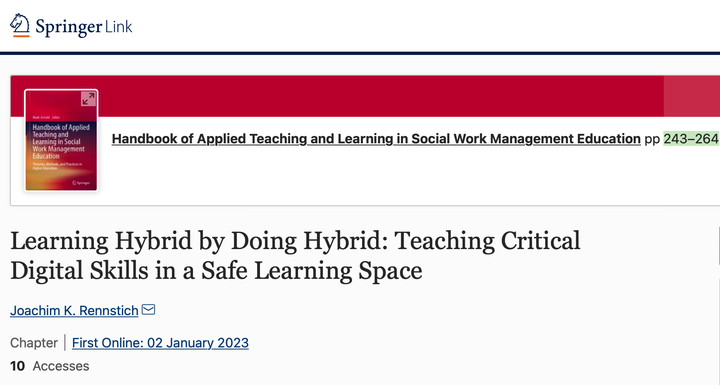Learning hybrid by doing hybrid: Teaching critical digital skills in a safe learning space

Zusammenfassung
Professional social work contexts are increasingly characterized by hybrid administrative work environments and social space settings blending physical and virtual arenas of interaction. Modern social work management education therefore requires students to gain new critical digital competencies and opportunities for students to acquire these critical skills as part of their academic training in a systematic fashion. This chapter first discusses the new work environments social workers encounter as a result of the transformation of typical social spaces and administrative challenges based on the increased digitalization, informationalization, and hybridization of social work contexts. Next, the paper highlights the respective new professional digital competencies required of social workers as part of their professional toolkit allowing them to (re)gain agency in these transformed social and administrative environments. The chapter then shares experiences from a research methodology module (BA and MA level) offered both in traditional campus/face-to-face and online formats, offering insights and best practices how students can acquire and discover critical digital literacies in a safe learning space. These include the design of learning environments as experiential experience spaces and respective assessment formats that further enhance the learning of students.